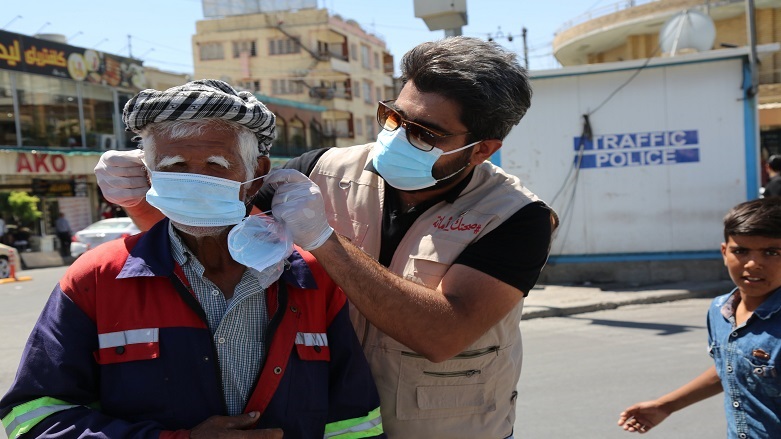COVID-19: Kurdistan Region reaches nearly 30,000 confirmed cases

ERBIL (Kurdistan 24) – The Kurdistan Region’s Ministry of Health on Wednesday announced over 570 new daily COVID-19 infections, with total confirmed cases now close to 30,000 since the pandemic crossed the region’s border in early March.
The ministry said in a statement that it had conducted 5,255 tests across the region in 24 hours, of which 579 returned positive: 268 in Duhok province, 164 in Erbil, 97 in Sulaimani, and 25 in Halabja.
The statement also mentioned there had been a new uptick of 27 deaths due to the disease in the same period: eight in Erbil, seven in Duhok, six in Sulaimani, and five in Raparin.
The statement noted that the total number of infections across the Kurdistan Region since the outbreak is close to 30,000 cases.
Of the total, 18,969 patients have recovered, 1,125 have died, while 9,832 are still receiving treatment.
It is important to note that recoveries do not necessarily mean the patient is cured as trends have shown that people who have contracted the virus still experience some symptoms and complications.
These days, Duhok province, which previously enjoyed low daily infections, has experienced new upticks in daily cases as well as fatalities. The low death rate in the province acquired praise from the World Health Organization (WHO) in Iraq, which described the province as an “example to look at” in controlling the virus.
Read More: COVID-19: Kurdistan Region records 540 new cases; WHO praises Duhok in fighting virus
On Tuesday, the WHO in Iraq announced it had concluded its nine-day awareness-raising campaign in the Kurdistan Region, in which it reached out to nearly 800,000 people in 10 areas across Sulaimani province, “including camps for internally displaced people and refugees in the Arbat and Kalar districts.”
The campaign involved the distribution of brochures filled with health instructions and risk factors about COVID-19. Moreover, flyers and educational videos were also used to convey health messages, including the importance of wearing face masks.
The organization chose Sulaimani province to initiate its campaign as it was previously the epicenter for the coronavirus due to its proximity with Iran, the hardest-hit country in the Middle East.
Editing by Karzan Sulaivany
